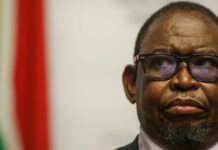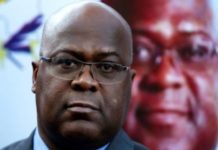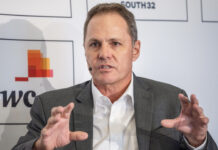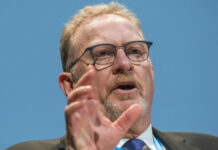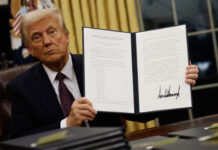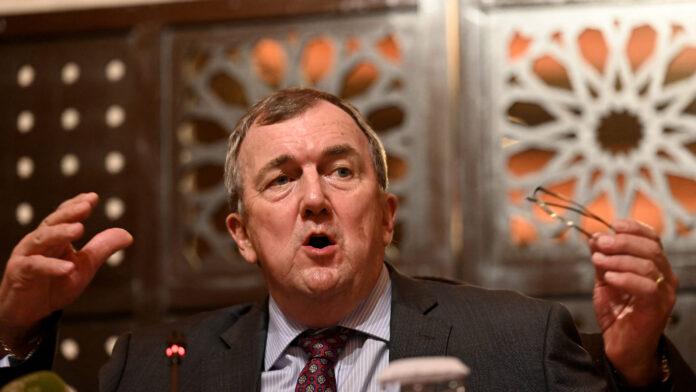
IN a rare public criticism of Mark Bristow, Barrick chairman John Thornton said at the London Indaba conference last year that the company had been too reticent in merger and acquisition dealmaking.
“Barrick has been, in my view, very slow to say to themselves: the most important thing when you’re buying companies in the mining industry … is just buy it,” Thornton said. “We have not done that. We have insisted on getting into the weeds and that has been a mistake.”
“With the cycles we have, and when the cycle is down, and share prices are very low, and it’s a company you should buy, just buy it. Don’t spend alot of time arguing around whether you should pay $6 or $8″. At the time, the gold price was about $2,300/oz.
Thornton had just switched his chairing role of Barrick’s board to non-executive, and when asked about this, he was quick to praise Bristow’s apparent indomitability at the firm: Who needs to be an executive chairman, he said “… when [Mark] Bristow is the CEO”?
Now, however, Bristow is CEO no longer – which takes some processing. When asked about Thornton’s comments last year, Bristow replied he was “100% on the same page” regarding merger and acquisition (M&A) activity with Barrick. “And that page is my page,” he added.
Words reflected in deed. In his seven years at Barrick, Bristow stuck to the mantra that made him one of the gold industry’s most successful gold executives while at Randgold & Resources, which was to build projects.
But it was a strategy that sometimes worried analysts. Reko Diq, the $9bn gold project in western Pakistan, was judged to be geopolitically risky. And yet Fourmile – a gold discovery in Nevada – recently helped Barrick’s share surge to a 12-year high. A “game changer” declared TD Cowen analyst Steven Green of the project, who added of Barrick that it “still has significant room to catch up on valuation”.
Barrick has been lagging its peer group in valuation for the last 18 months. This figures highly in Bristow’s departure, mutually agreed, and the firm’s forward planning, it would seem. “The board is committed to both finding the right leader to fully capitalize on Barrick’s world-class assets and capabilities, and to driving improved performance, growth and shareholder value,” Thornton said today.
Yet, interestingly, that valuation gap appeared to be narrowing in Barrick’s favour.
BMO Capital Markets recently increased its target price for Barrick 11% to C$41/share on September 22, on the back of Fourmile’s prospects. Before that, in August, the company posted much improved net earnings for the second quarter – its best in over a decade – owing to reduced all in sustaining costs and a 15% increase in the gold price.
So it’s odd that alleged underperformance, just when the dial was turning for Bristow, has undone him.
What is not behind Bristow’s departure, sources say, is his resolute stand on Mali, the West African nation with which the company has been embroiled in a dispute for more than two years over alleged unpaid taxes. Not even when a senior Barrick executive who had been representing the company with Mali switched sides in September to become an adviser to Mali’s president.
At stake is the 550,000 ounce a year Loulo-Gounkoto mine, currently at a standstill amid the conflict. Barrick has agreed to pay about $438m to the Mali government, in return for the release of detained employees, seized gold, and restarting the operations at the Loulo-Gounkoto mine. Perhaps it wouldn’t pay for Barrick to sack its CEO explicity over this matter when negotiations with Mali are continuing.
Exit of the Randgold generation
Bristow’s exit from Barrick brings the curtain down on a generation of transformative, outspoken and colourful South African gold CEO-entrepreneurs.
Born of the Randgold & Exploration group in the Nineties, they include Bernard Swanepoel, the former CEO of Harmony Gold, Jan Nelson, the former CEO of Copper 360 and Pan African Gold, and Neal Froneman whose last day at Sibanye-Stillwater is officially tomorrow (September 30).
Froneman says he intends to remain active in business. While it’s hard to say what Bristow may do next, the industry will be far quieter if he decides to stay away.


